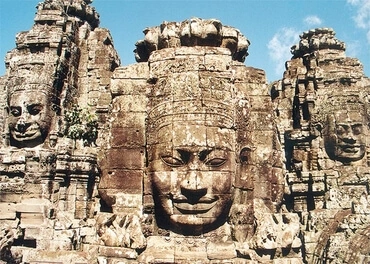1
And it came to pass after this that the king of the children of Ammon died, and Hanun his son reigned in his stead.
2
And David said, I will shew kindness to Hanun the son of Nahash, as his father shewed kindness to me. And David sent to comfort him by the hand of his servants for his father. And David's servants came into the land of the children of Ammon.
3
And the princes of the children of Ammon said to Hanun their lord, Is it, in thine eyes, to honour thy father that David has sent comforters to thee? Is it not to search the city and to spy it out, and to overthrow it, that David has sent his servants to thee?
4
And Hanun took David's servants, and had the one half of their beards shaved off, and their raiment cut off in the midst, as far as their buttocks, and sent them away.
5
And they told [it] to David; and he sent to meet them, for the men were greatly ashamed. And the king said, Abide at Jericho until your beards be grown, and then return.
6
And the children of Ammon saw that they had made themselves odious to David; and the children of Ammon sent and hired the Syrians of Beth-Rehob, and the Syrians of Zoba, twenty thousand footmen, and the king of Maacah [with] a thousand men, and the men of Tob twelve thousand men.
7
And David heard [of it], and he sent Joab, and all the host, the mighty men.
8
And the children of Ammon came out, and put the battle in array at the entrance of the gate; and the Syrians of Zoba and of Rehob, and the men of Tob and Maacah were by themselves in the field.
9
And Joab saw that the front of the battle was against him before and behind; and he chose out of all the choice men of Israel, and put them in array against the Syrians;
10
and the rest of the people he gave into the hand of Abishai his brother that he might array them against the children of Ammon.
11
And he said, If the Syrians be too strong for me, then thou shalt help me; and if the children of Ammon be too strong for thee, then I will come and help thee.
12
Be strong, and let us shew ourselves valiant for our people and for the cities of our God; and Jehovah do what is good in his sight.
13
And Joab drew near, and the people that were with him, unto the battle against the Syrians; and they fled before him.
14
And when the children of Ammon saw that the Syrians fled, they fled before Abishai, and entered into the city. And Joab returned from the children of Ammon, and came to Jerusalem.
15
And when the Syrians saw that they were routed before Israel, they gathered themselves together.
16
And Hadarezer sent, and drew forth the Syrians that were beyond the river; and they came to Helam; and Shobach the captain of the host of Hadarezer [went] before them.
17
And it was told David; and he gathered all Israel, and passed over the Jordan, and came to Helam. And the Syrians set themselves in array against David, and fought with him.
18
And the Syrians fled before Israel; and David slew of the Syrians seven hundred [in] chariots, and forty thousand horsemen, and smote Shobach the captain of their host, who died there.
19
And all the kings that were servants to Hadarezer saw that they were routed before Israel, and they made peace with Israel, and served them. And the Syrians feared to help the children of Ammon any more.








